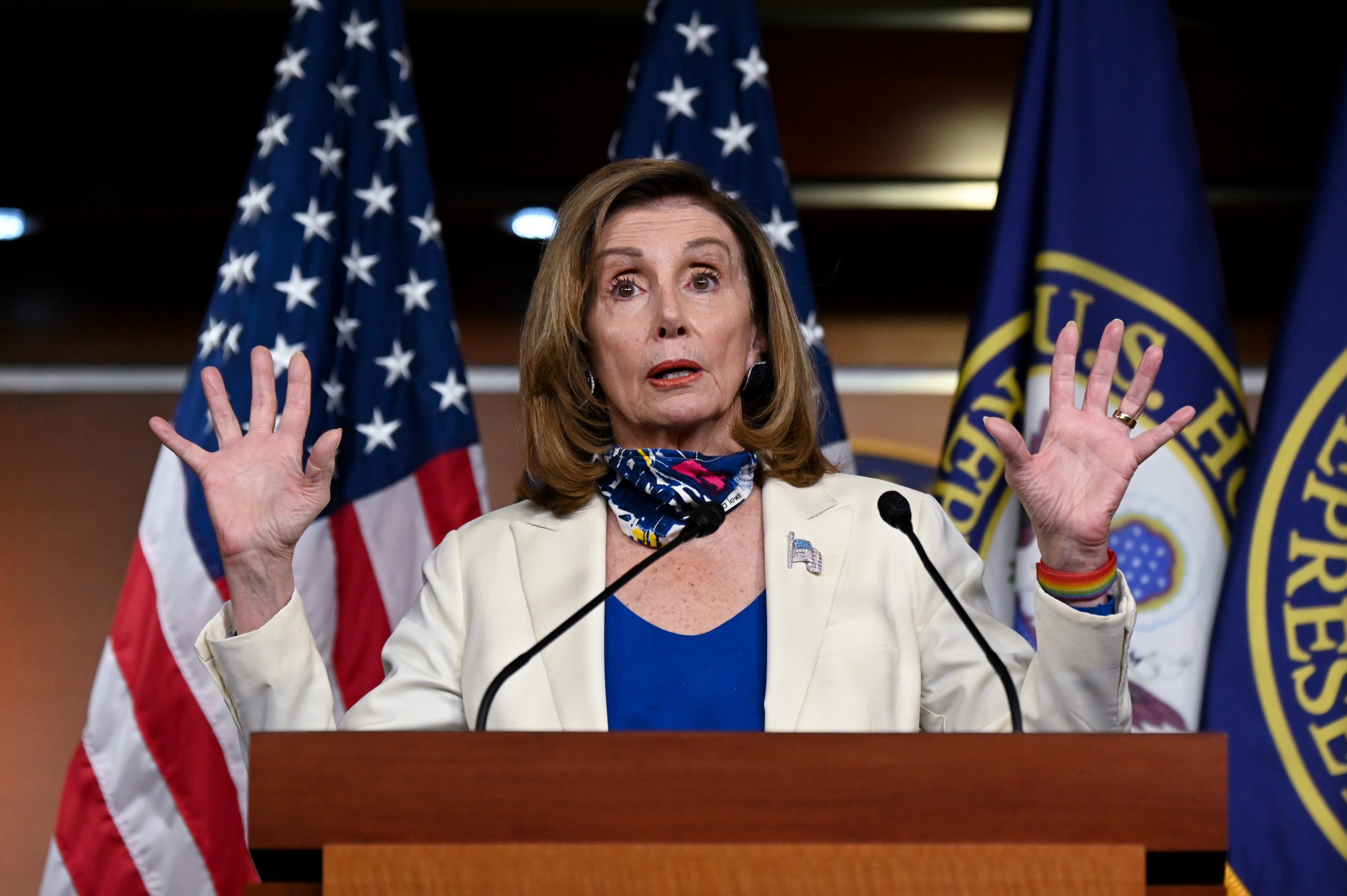U.S. House Speaker Nancy Pelosi and Treasury Secretary Steven Mnuchin remained far from agreement on COVID-19 relief in key areas on Thursday, after they failed in a phone discussion to bridge what Pelosi described as differences over dollars and values.
Congressional Democrats led by Pelosi have proposed a $2.2 trillion package to respond to a pandemic that has killed more than 207,000 Americans and thrown millions out of work. In the absence of a deal with the White House, the Democratic-majority House of Representatives began debating the partisan relief bill and planned to vote on it later Thursday evening.
Republican President Donald Trump’s negotiating team has suggested a $1.6 trillion response, and the White House on Thursday dismissed Democrats’ offer as not serious.
As lawmakers prepared to leave Washington for the remaining weeks of the 2020 presidential and congressional campaign, Pelosi and Mnuchin differed over aid to state and local governments, Democratic demands for a child tax credit and stronger worker safety protections, healthcare provisions and aid for small businesses.
“The two discussed further clarifications on amounts and language, but distance on key areas remain. Their conversation will continue this afternoon,” Drew Hammill, Pelosi’s deputy chief of staff, wrote on Twitter. He said the phone call lasted about 50 minutes.
The House of Representatives was due to vote around 7 p.m. EDT (2300 GMT) Thursday on the Democratic package, after a day’s delay to give more time for a deal with the White House to come together.
“Negotiations are continuing and I ardently hope that we can soon return to this floor with a bipartisan agreement,” House Appropriations Committee Chairwoman Nita Lowey said during a debate. In the meantime, she said a strong vote on the Democratic bill would demonstrate a “will to act.”
But Republicans said the bill’s price tag was too high. “It totals more than $2 trillion, which is more than we appropriate for an entire year,” said Representative Kay Granger, a Republican.
A bipartisan deal has been long delayed by disagreements over Democratic demands for aid to state and local governments and Republican insistence for a provision protecting businesses and schools from coronavirus-related lawsuits
White House spokeswoman Kayleigh McEnany dismissed the Democratic proposal as “not a serious offer.”
Pelosi said of the White House proposal on Bloomberg TV: “This isn’t half a loaf. What they’re offering is the heel of the loaf.”
Republican Senator Mike Braun told CNBC on Thursday that a deal worth over $1.6 trillion could be rejected by one-third to one-half of Senate Republicans. That would still allow a bill to pass with support from Democrats.
Pelosi and Mnuchin have been talking by phone all week, and they met for 90 minutes in the U.S. Capitol on Wednesday, with each emerging pledging to continue discussions.
Mnuchin raised hopes of an agreement by telling reporters that the discussions had made “a lot of progress in a lot of areas.”
Lawmakers and securities analysts viewed talks as a last-gasp effort to secure relief ahead of the Nov. 3 election for tens of millions of Americans and business including U.S. airlines, which have begun furloughing over 32,000 workers.
The Trump administration has proposed a $20 billion extension in aid for the battered airline industry, White House chief of staff Mark Meadows told reporters late on Wednesday.
Pressure for a deal has been mounting on the White House and Congress to strengthen the economy from the devastating effects of a coronavirus pandemic that has infected more than 7.2 million people in the United States.
(Reporting by Susan Cornwell and David Morgan; additional reporting by Susan Heavey, Doina Chicacu, Daphne Psaledakis and Lisa Lambert; Editing by Scott Malone, Cynthia Oserman and Lisa Shumaker)

























 Continue with Google
Continue with Google